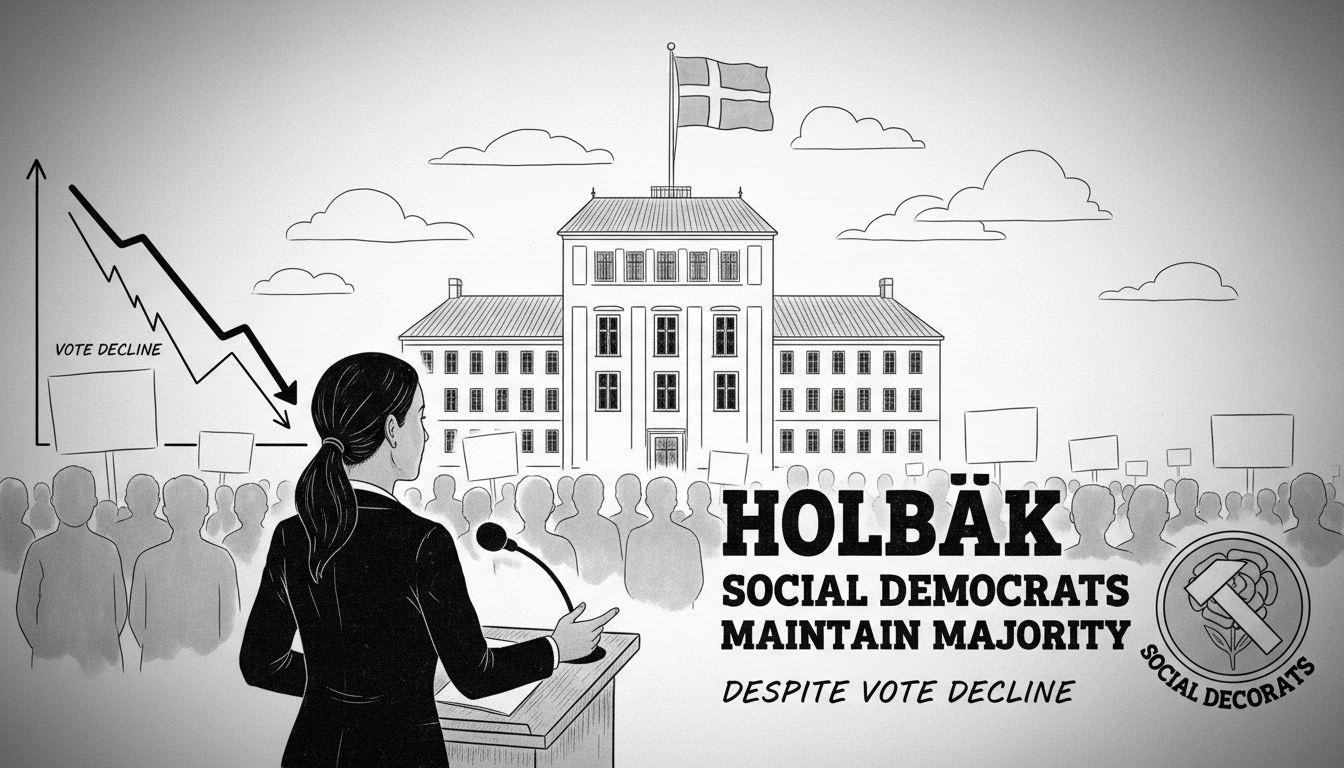Christina Krzyrosiak Hansen remains Holbæk's mayor after her Social Democratic party secured an absolute majority in local elections. The popular politician faced her first electoral test since becoming Denmark's youngest mayor in history.
The Social Democrats captured 52.3 percent of votes in the municipality. This represents a 6.7 percentage point drop from their previous result. The decline follows a national trend affecting the party across Denmark.
Christina Krzyrosiak Hansen first made history in 2017 when elected as Holbæk's mayor at just 24 years old. She became the youngest mayor in Danish history at that time. Her popularity remained strong four years later when she emerged as Denmark's most popular mayor with 46.5 percent support in her municipality.
Before this election, she already enjoyed support from a political alliance including Socialist People's Party, Red-Green Alliance and Alternative. All three parties backed her reelection bid.
The Liberal Party with Rasmus Brandstrup Larsen as lead candidate remains the second-largest party in Holbæk. They secured 10.8 percent of votes. Their support also declined by 4.5 percentage points since the last election.
Liberal Alliance emerged as the biggest winner in Holbæk's local election. The party gained 5.1 percent of votes, representing a 3.8 percentage point increase. This strong performance reflects growing support for the party in municipal politics.
The Social Democratic decline in Holbæk mirrors broader national trends. The party has experienced similar setbacks across multiple Danish municipalities. This pattern suggests shifting voter preferences rather than local factors specific to Holbæk.
Local elections in Denmark typically focus on municipal services, schools and infrastructure. Voters often prioritize practical local issues over national political debates. The maintained majority suggests residents still trust the current leadership on these core local matters.
Denmark's municipal system gives local governments significant responsibility for welfare services, education and urban planning. Mayors wield considerable influence over daily life quality in their municipalities. Holbæk's continued Social Democratic leadership indicates stability in local governance approaches.
International observers often study Danish local elections for insights into Scandinavian political trends. The mixed results in Holbæk show both continuity and change in Danish political landscape. Voters appear to reward effective local leadership while expressing broader political shifts through reduced margins.
The election outcome ensures policy continuity in Holbæk's administration. Major projects and municipal initiatives will likely continue under existing leadership. The reduced majority might encourage more collaboration with other parties on contentious issues.

